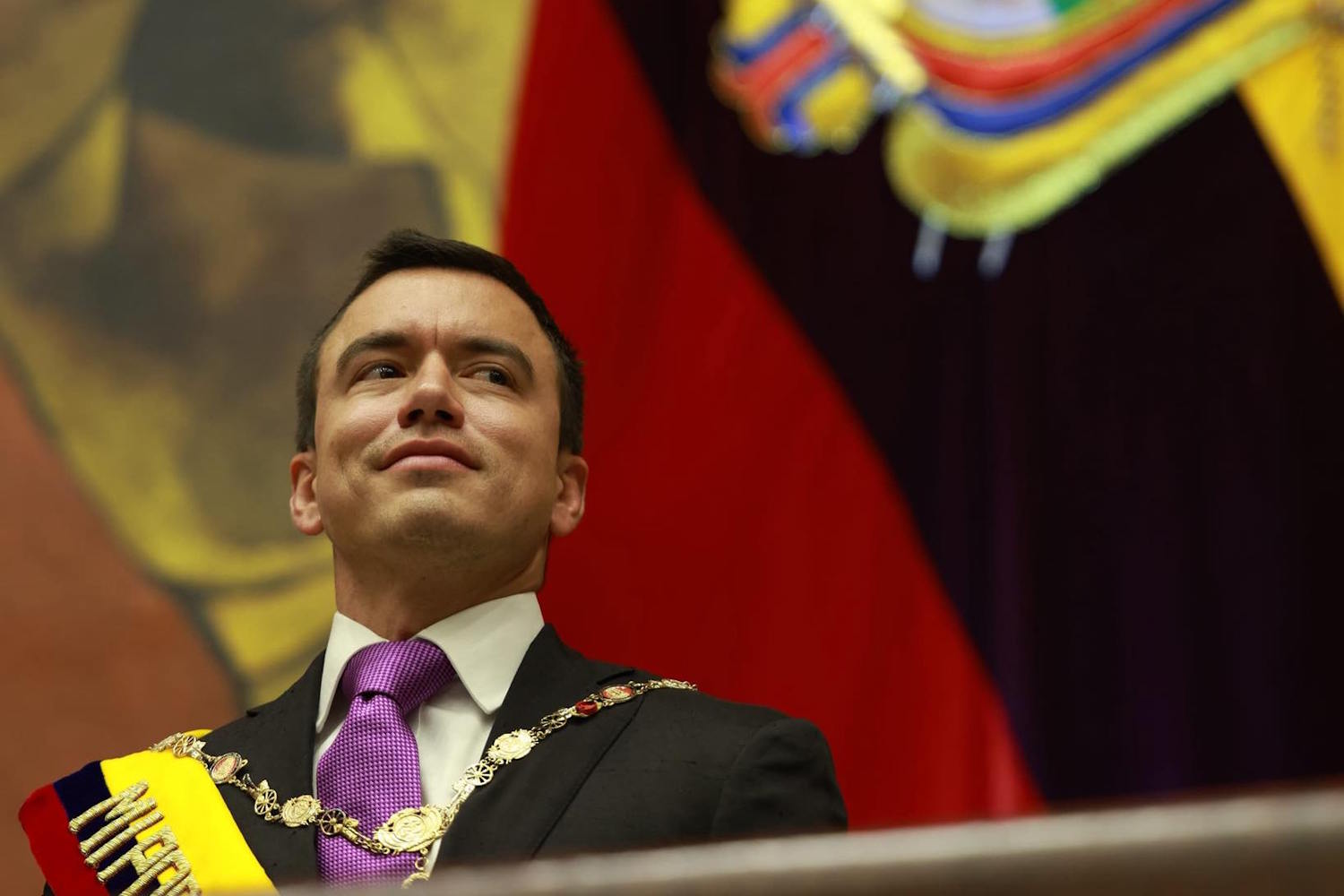Ecuador’s drastic cuts to environmental ministries and heavy reliance on oil raise concerns for both the environment and the future economy. The country needs an alternative to fossil fuel dependency.

@Daniel Noboa/FB
In a bold move that has sparked significant controversy, Ecuador’s President, Daniel Noboa, recently signed a decree eliminating six government ministries, including the Ministry of Environment. The decision, aimed at reducing public spending, has led to the immediate dismissal of over 5,000 public sector employees, including those in critical environmental roles.
Official statements frame this as an effort to improve efficiency and citizen service. However, the elimination of the Ministry of Environment, with its subsequent integration into the Ministry of Energy, has raised alarm. Ecuador has long been at the heart of vital environmental struggles, often putting indigenous rights at risk. Noboa’s decision could further weaken the institutions that safeguard both the environment and the rights of local communities. This could, in turn, bolster the interests of the oil and mining industries—key players in Ecuador’s economic strategy to attract foreign investments and revive the country’s economy.
The Environmental Monitor Faces a Serious Setback
According to Amazon Frontlines, this move signals a dismantling of Ecuador’s environmental monitoring system. This could significantly increase the impunity of large oil and mining companies, which have historically been linked to severe environmental destruction. The risks extend to indigenous communities, who may lose the constitutional protections that safeguard their rights, including the right to free, prior, and informed consent about projects affecting their ancestral lands.
The country’s economic reality, however, cannot be ignored. Ecuador is under pressure from the International Monetary Fund (IMF), which recently approved a $600 million loan for the country in exchange for stringent economic reforms. As part of the IMF’s austerity measures, there have been drastic cuts, particularly affecting environmental and human rights sectors. For the IMF, the priority is to stabilize Ecuador’s public finances, even if it means sacrificing long-term sustainability and environmental protections.
Petroleum Dependency: The Short-Term Solution to Economic Struggles
Despite the environmental damage caused by the petroleum sector, oil remains a cornerstone of Ecuador’s economy. In a twist of irony, the reopening of the SOTE pipeline, which had been temporarily shut down due to technical issues, provided a much-needed lifeline for the country. Prior to its reopening, Ecuador had suffered a 90% drop in oil production, resulting in an estimated loss of $20 million a day. Thus, the resumption of oil extraction and sales is seen as a quick fix, despite the profound long-term consequences it may entail.
A Myopic Approach to Economic Revival
However, this approach risks being short-sighted. The revival of oil as an economic engine is not just a temporary solution—it is a step toward further depleting natural resources and exacerbating climate change. Ecuador, like many countries around the globe, is already experiencing devastating effects of global warming. Since the start of 2025, the country has recorded 52 deaths, thousands of homes destroyed, and tens of thousands of people affected by extreme climate events.
Ecuador needs an alternative plan—one that doesn’t rely on fossil fuels. The idea of putting all bets on oil may prove to be not only environmentally disastrous but also economically unwise. Without a strategy for transitioning to a sustainable, diversified development model, what may seem like a short-term cost-saving measure could lead to an expensive price to pay in the future.
Fonte: Amazon Frontlines
